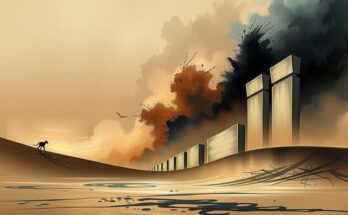The Democratic Republic of Congo offers the US and Europe access to its mineral resources in exchange for intervention to cease ongoing conflicts. President Tshisekedi emphasized direct trade to counter illicit sourcing through Rwanda and expressed the potential for agreements that ensure stability. The US, EU, and Belgium are involved in navigating relations while addressing tensions and allegations of mineral exploitation linked to Rwanda’s military presence.
In a significant diplomatic initiative, Democratic Republic of Congo (DRC) President Felix Tshisekedi has proposed granting the United States and Europe access to the nation’s extensive mineral resources, contingent upon their intervention to resolve the ongoing conflict affecting the country. Presidential Spokesperson Tina Salama emphasized the importance of direct transactions for critical minerals from Kinshasa, as opposed to purchasing illicitly sourced materials through neighboring Rwanda.
During an interview with The New York Times, President Tshisekedi acknowledged the potential for a minerals agreement that could enhance security and stability in the DRC. He also noted prior interest from the Trump administration in securing a direct mineral supply from the DRC. His current proposal comes on the heels of US sanctions against a high-ranking Rwandan military officer linked to the rebel group M23, which has been seizing territory in eastern DRC.
Currently, China holds a more significant foothold in Congo’s mineral sector compared to the US, while the European Union (EU) has engaged in negotiations with Rwanda, which included a $935 million deal for raw minerals last year. Despite failing to reach a consensus on sanctions against Rwanda in a recent meeting, EU officials are reviewing their agreement regarding critical raw materials. EU High Representative Kaja Kallas stated they have urged Rwanda to withdraw its troops and will reassess their memorandum of understanding.
Belgium has engaged in separate agreements with the DRC to enhance critical mineral supply security, designating Rwanda as a significant player in global mineral extraction. Accusations have arisen against Rwanda for exploiting unrest to pilfer DRC’s minerals, particularly gold and cobalt, which are vital for technology and electric vehicles. A UN report highlighted that approximately 120 tonnes of coltan are smuggled monthly into Rwanda, with the latter denying such claims.
With the DRC being the leading producer of cobalt globally and accounting for the majority of tantalum extraction with Rwanda, the eastern region continues to be rich in resources like tin and tungsten. However, mining practices in the region are fraught with serious ethical concerns, including environmental damage and human rights violations, with reports of child labor in hazardous conditions.
In conclusion, President Tshisekedi’s proposal to the US and Europe for access to Congo’s valuable mineral resources underscores the urgent need for international cooperation to restore peace and stability in the DRC. By encouraging direct engagement in mineral trade, Tshisekedi aims to mitigate illicit activities and foster economic development, while ongoing allegations against Rwanda highlight the complexities of the regional conflict. The situation remains critical as stakeholders engage in discussions to find a sustainable resolution.
Original Source: www.mining.com




